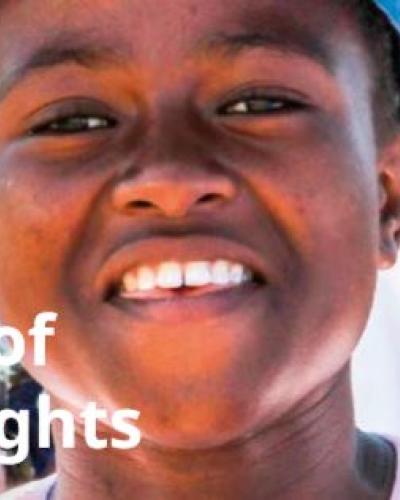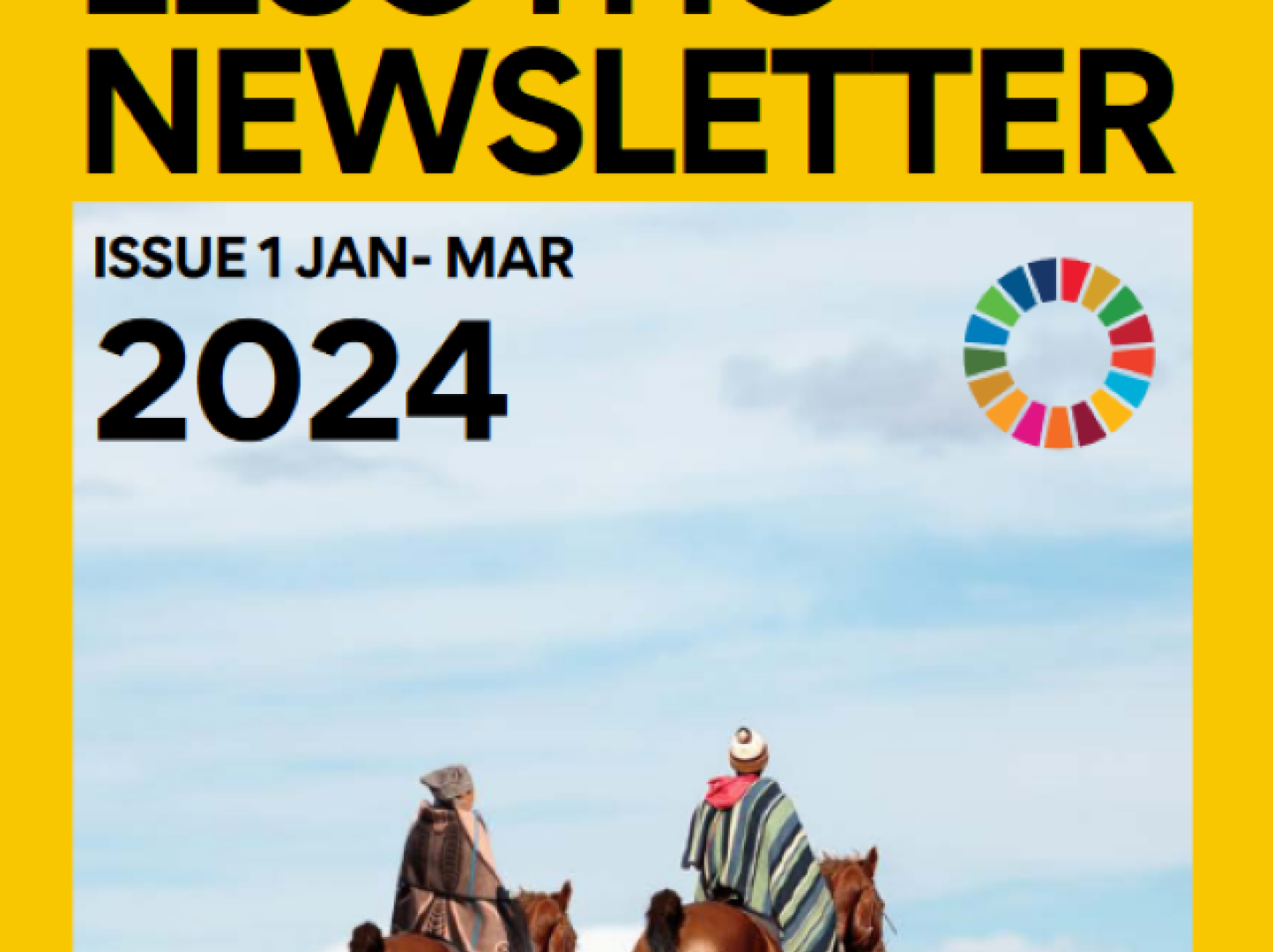UNDAF Fact sheet: Pillar 1- Accountable Governance, Effective Institutions, Social Cohesion and Inclusion

SECURITY AND GOVERNANCE NEED TO BE IMPROVED
Lesotho has faced persistent political instability since the country gained independence in 1966. This has left the country with a weak state, and state institutions that are highly party-politicized. Frequent government changes – three in less than five years – reflect governance challenges. The involvement of the security sector in governance has also played a significant role in contributing to the current political upheaval. Women and young people need to be given a greater and more active role in the country’s development process.
LIMITED CAPACITY TO PROMOTE HUMAN RIGHTS
The political crisis has led to an increase in human rights violations, with concerns around how suspects and inmates are treated by the police and correctional institutions. The human rights situation has also been negatively affected by a lack of capacity within existing institutions. Despite the adoption of legislation in 2016, the National Human Rights Commission has yet to become operational. High levels of gender-based violence, especially in rural and mountainous areas, as well as child labour, human trafficking and victimization of irregular migrants have to be addressed urgently.
POOR AVAILABILITY OF DATA AND LIMITED USE IN DECISION-MAKING
While the United Nations in Lesotho continues to support the Bureau of Statistics (BOS) to collect, analyze and disseminate data, the use of evidence in decision-making across government bodies must be strengthened. Data on important issues such as migration, environment, labour and disaggregated data by age, rural/urban location and disability remain scarce or obsolete and hinder progress in evidencebased policy-making.
WOMEN AND YOUNG PEOPLE’S PARTICIPATION NEEDS STRENGTHENING
Given Lesotho’s youthful population and the fact that more than 6 in 10 households are run by women, it is essential to give women, young people and other vulnerable groups the voice and means to influence decisions and policies that affect their lives. Currently, female representation in parliament is only 25 per cent, and 1 in 4 women is unemployed. Women and youths in rural areas bear the brunt of poverty and lack of opportunity.
Supporting good governance, rule of law and human rights
SUPPORTING GOOD GOVERNANCE, RULE OF LAW AND HUMAN RIGHTS
The Government of Lesotho’s commitment to far-reaching reforms presents a chance to increase vulnerable groups’ participation in politics, society and the economy, but more effort is needed to ensure that voices are heard and taken into account in policy development.
ACCESS TO JUSTICE IS POOR
The justice sector and the rule of law in Lesotho are critical to the attainment of the country’s development goals. However, many issues still need to be tackled. These include inequalities in access to justice; a backlog of court cases; and inadequate prosecutorial skills and insufficient capacity of law enforcement officials. Poor coordination between various ministerial departments also adds to the challenge. Various pieces of legislation that could change the lives of women and children for the better still need to be enacted or harmonized. Enforcement of labour law also has to be strengthened to achieve decent work across all productive sectors.
HIGH LEVELS OF OUTMIGRATION AND HUMAN TRAFFICKING
Migration – both internal and external – is a dominant livelihood strategy for households in Lesotho. Over 90 per cent of the population has moved from their districts of birth and live elsewhere within the country, while nearly 1 in 10 people has left Lesotho (2016 Census), primarily to work in the mines and commercial farms of South Africa. Lesotho is also a source and transit country for women and children subjected to human trafficking, specifically for forced domestic service and sex work, and for men in forced labour. The legislation and policy regime, as well as law enforcement, need to be significantly improved to address migration, border and migration management, rights of migrant workers and human trafficking.








